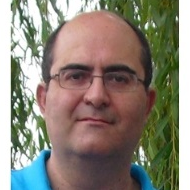Engineering Applied to Sustainable Development Goals II
A special issue of Applied Sciences (ISSN 2076-3417). This special issue belongs to the section "Green Sustainable Science and Technology".
Deadline for manuscript submissions: closed (15 October 2022) | Viewed by 2130

Special Issue Editors
Interests: photovoltaic; reliability; III–V semiconductors; space and concentrator solar cells; LEDs; instrumentation; spectroscopy
Special Issues, Collections and Topics in MDPI journals
Interests: digital transformation; data envelopment analysis (DEA); business and management; environmental economics
Special Issues, Collections and Topics in MDPI journals
Special Issue Information
Dear Colleagues,
The applied engineering should be the main driving force for the Sustainable Development Goals (SDGs) of the United Nations (UN). SDGs aim to end poverty, protect the planet, and ensure prosperity for everyone by 2030. These goals call for a better way to do engineering, by considering the SDGs, in order to ensure a safe future for everyone.
Applied engineering sciences—aerospace, marine, bioengineering, energy, civil, mechanical, computer, artificial intelligence, electrical, electronics, communications, industrial, robotics, and automation—would promote these encouraging goals. Advanced engineering developments that enhance anyone's future have a place in this Special Issue.
Therefore, this Special Issue is more aimed at the relevant SDGs and for new engineering applications, than at basic research or Earth sciences. Topics of interest include, but are not limited, to the following: renewable energy, new efficient-ecofriendly devices as LEDs, online low-cost quality education, instrumentation for controlling pollutants or deforestation, increase in water and sanity quality by engineering, resilience of civil engineering and sustainable cities to the climate change, and the reliability of equipment for the new climate conditions. Reviews are also welcome in this Special Issue.
The Special Issue of the journal Applied Sciences, “Engineering Applied to Sustainable Development Goals”, aims to cover recent engineering advances and applications in line with the United Nations Sustainable Development Goals.
Dr. Neftali Nuñez
Dr. Margarita Martinez-Nuñez
Guest Editors
Manuscript Submission Information
Manuscripts should be submitted online at www.mdpi.com by registering and logging in to this website. Once you are registered, click here to go to the submission form. Manuscripts can be submitted until the deadline. All submissions that pass pre-check are peer-reviewed. Accepted papers will be published continuously in the journal (as soon as accepted) and will be listed together on the special issue website. Research articles, review articles as well as short communications are invited. For planned papers, a title and short abstract (about 100 words) can be sent to the Editorial Office for announcement on this website.
Submitted manuscripts should not have been published previously, nor be under consideration for publication elsewhere (except conference proceedings papers). All manuscripts are thoroughly refereed through a single-blind peer-review process. A guide for authors and other relevant information for submission of manuscripts is available on the Instructions for Authors page. Applied Sciences is an international peer-reviewed open access semimonthly journal published by MDPI.
Please visit the Instructions for Authors page before submitting a manuscript. The Article Processing Charge (APC) for publication in this open access journal is 2400 CHF (Swiss Francs). Submitted papers should be well formatted and use good English. Authors may use MDPI's English editing service prior to publication or during author revisions.
Keywords
- engineering for good health and well-being
- engineering for improving universal education
- engineering for gender equality and reducing inequalities
- engineering for clean water and sanitation
- engineering for affordable and clean energy
- engineering for industry, innovation, and infrastructure
- engineering for sustainable cities and communities
- engineering for responsible consumption and production
- engineering for climate action
- engineering for life below water and on land






